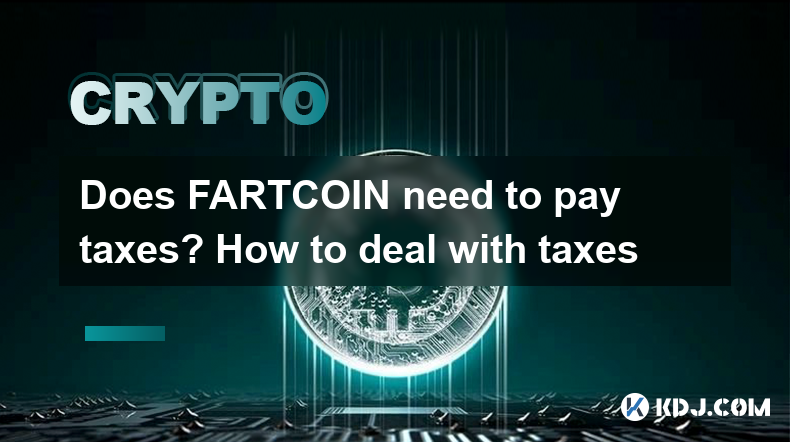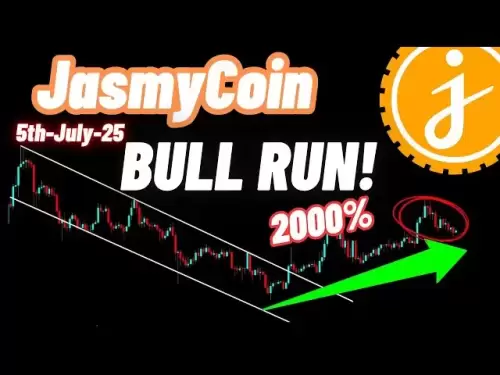-
 Bitcoin
Bitcoin $108,017.2353
-0.81% -
 Ethereum
Ethereum $2,512.4118
-1.58% -
 Tether USDt
Tether USDt $1.0002
-0.03% -
 XRP
XRP $2.2174
-1.03% -
 BNB
BNB $654.8304
-0.79% -
 Solana
Solana $147.9384
-1.76% -
 USDC
USDC $1.0000
-0.01% -
 TRON
TRON $0.2841
-0.76% -
 Dogecoin
Dogecoin $0.1636
-2.09% -
 Cardano
Cardano $0.5726
-1.72% -
 Hyperliquid
Hyperliquid $39.1934
1.09% -
 Sui
Sui $2.9091
-0.59% -
 Bitcoin Cash
Bitcoin Cash $482.1305
0.00% -
 Chainlink
Chainlink $13.1729
-1.54% -
 UNUS SED LEO
UNUS SED LEO $9.0243
-0.18% -
 Avalanche
Avalanche $17.8018
-1.90% -
 Stellar
Stellar $0.2363
-1.69% -
 Toncoin
Toncoin $2.7388
-3.03% -
 Shiba Inu
Shiba Inu $0.0...01141
-1.71% -
 Litecoin
Litecoin $86.3646
-1.98% -
 Hedera
Hedera $0.1546
-0.80% -
 Monero
Monero $311.8554
-1.96% -
 Dai
Dai $1.0000
-0.01% -
 Polkadot
Polkadot $3.3473
-2.69% -
 Ethena USDe
Ethena USDe $1.0001
-0.01% -
 Bitget Token
Bitget Token $4.3982
-1.56% -
 Uniswap
Uniswap $6.9541
-5.35% -
 Aave
Aave $271.7716
0.96% -
 Pepe
Pepe $0.0...09662
-1.44% -
 Pi
Pi $0.4609
-4.93%
Does FARTCOIN need to pay taxes? How to deal with taxes
FARTCOIN transactions, like selling or trading, may trigger taxable events; investors must report gains/losses on tax returns and can use software to manage compliance.
May 01, 2025 at 07:28 pm

Understanding FARTCOIN and Tax Obligations
FARTCOIN, like other cryptocurrencies, has become a popular investment option in recent years. As the world of digital currencies continues to grow, so does the complexity of their tax implications. It is crucial for investors to understand whether they need to pay taxes on their FARTCOIN transactions and how to manage these tax obligations effectively.
Taxable Events Involving FARTCOIN
The tax treatment of FARTCOIN depends on the nature of the transactions. In many jurisdictions, cryptocurrency transactions are subject to capital gains tax. This includes activities such as selling FARTCOIN for fiat currency, trading it for another cryptocurrency, or using it to purchase goods and services. Each of these actions can trigger a taxable event, and the gains or losses must be reported accordingly.
Calculating Capital Gains and Losses
To determine the tax liability on FARTCOIN, investors need to calculate their capital gains or losses. This involves subtracting the cost basis (the original purchase price of the FARTCOIN) from the sale price. If the result is positive, it represents a capital gain, which is taxable. Conversely, a negative result indicates a capital loss, which can often be used to offset other gains.
Reporting FARTCOIN Transactions on Tax Returns
In many countries, cryptocurrency transactions must be reported on annual tax returns. This includes detailing each transaction, the date it occurred, the cost basis, the sale price, and the resulting gain or loss. It is essential to keep detailed records of all FARTCOIN transactions to ensure accurate reporting and compliance with tax laws.
Using Tax Software for FARTCOIN
Given the complexity of tracking and reporting cryptocurrency transactions, many investors turn to specialized tax software. These tools can help automate the process of calculating gains and losses, generating necessary tax forms, and ensuring compliance with tax regulations. Some popular options include CryptoTrader.Tax, CoinLedger, and TaxBit.
Steps to File Taxes for FARTCOIN
Filing taxes for FARTCOIN involves several steps to ensure accuracy and compliance. Here is a detailed guide on how to handle the process:
Gather Transaction Records: Collect all records of your FARTCOIN transactions, including dates, amounts, and counterparties. This can be done by exporting transaction history from your cryptocurrency exchange or wallet.
Calculate Gains and Losses: Use the transaction records to calculate your capital gains and losses. Subtract the cost basis from the sale price for each transaction to determine the net gain or loss.
Choose a Tax Software: Select a reputable tax software that supports cryptocurrency transactions. Import your transaction data into the software to automate the calculation of gains and losses.
Generate Tax Forms: The tax software will generate the necessary tax forms, such as Form 8949 and Schedule D for U.S. taxpayers. Review these forms for accuracy before filing.
File Your Tax Return: Submit your tax return, including the generated forms, to the relevant tax authority. Ensure that you meet the filing deadline to avoid penalties.
Keep Records: Retain all records of your FARTCOIN transactions and tax filings for at least the period required by your tax authority, typically several years.
Dealing with Tax Audits
In the event of a tax audit, having detailed records of your FARTCOIN transactions is crucial. Tax authorities may request documentation to verify the accuracy of your reported gains and losses. Keeping comprehensive records, including transaction histories, receipts, and tax forms, can help you navigate an audit smoothly and demonstrate compliance with tax laws.
Frequently Asked Questions
Q: Can I offset FARTCOIN losses against other income?
A: In many jurisdictions, capital losses from FARTCOIN can be used to offset capital gains from other investments. However, the ability to offset these losses against ordinary income may be subject to specific limitations and should be reviewed with a tax professional.
Q: Do I need to report FARTCOIN transactions if I didn't sell any?
A: Even if you did not sell any FARTCOIN, you may still need to report certain transactions, such as receiving FARTCOIN as income or using it to purchase goods and services. It is important to consult the tax laws of your jurisdiction to determine your reporting obligations.
Q: How do I handle FARTCOIN transactions on decentralized exchanges?
A: Transactions on decentralized exchanges can be more challenging to track due to the lack of centralized reporting. It is essential to keep detailed records of these transactions, including the date, amount, and counterparty. Some tax software solutions can import data from decentralized exchanges to help with reporting.
Q: Are there any tax benefits to holding FARTCOIN long-term?
A: In some jurisdictions, holding FARTCOIN for a longer period may qualify for long-term capital gains treatment, which can result in lower tax rates compared to short-term gains. It is advisable to consult with a tax professional to understand the specific tax benefits available in your jurisdiction.
Disclaimer:info@kdj.com
The information provided is not trading advice. kdj.com does not assume any responsibility for any investments made based on the information provided in this article. Cryptocurrencies are highly volatile and it is highly recommended that you invest with caution after thorough research!
If you believe that the content used on this website infringes your copyright, please contact us immediately (info@kdj.com) and we will delete it promptly.
- Chainlink's Bullish Blueprint: Price Prediction and the Harmonic Pattern
- 2025-07-06 06:30:12
- Ruvi AI: The Audited Token Promising ROI That'll Make Your Head Spin
- 2025-07-06 06:30:12
- Ruvi AI, Token, and Dogecoin: The Next Big Thing in Crypto?
- 2025-07-06 06:35:13
- Dogecoin, PayFi Token, XRP, and Cardano: What's the Hype in the Crypto Space?
- 2025-07-06 04:50:13
- Ruvi AI: The Ethereum Alternative Delivering 100x Token Returns?
- 2025-07-06 05:10:13
- Little Pepe: The Meme Coin Primed for Investment Potential?
- 2025-07-06 04:30:12
Related knowledge

How to customize USDT TRC20 mining fees? Flexible adjustment tutorial
Jun 13,2025 at 01:42am
Understanding USDT TRC20 Mining FeesMining fees on the TRON (TRC20) network are essential for processing transactions. Unlike Bitcoin or Ethereum, where miners directly validate transactions, TRON uses a delegated proof-of-stake (DPoS) mechanism. However, users still need to pay bandwidth and energy fees, which are collectively referred to as 'mining fe...

USDT TRC20 transaction is stuck? Solution summary
Jun 14,2025 at 11:15pm
Understanding USDT TRC20 TransactionsWhen users mention that a USDT TRC20 transaction is stuck, they typically refer to a situation where the transfer of Tether (USDT) on the TRON blockchain has not been confirmed for an extended period. This issue may arise due to various reasons such as network congestion, insufficient transaction fees, or wallet-rela...

How to cancel USDT TRC20 unconfirmed transactions? Operation guide
Jun 13,2025 at 11:01pm
Understanding USDT TRC20 Unconfirmed TransactionsWhen dealing with USDT TRC20 transactions, it’s crucial to understand what an unconfirmed transaction means. An unconfirmed transaction is one that has been broadcasted to the blockchain network but hasn’t yet been included in a block. This typically occurs due to low transaction fees or network congestio...

How to check USDT TRC20 balance? Introduction to multiple query methods
Jun 21,2025 at 02:42am
Understanding USDT TRC20 and Its ImportanceUSDT (Tether) is one of the most widely used stablecoins in the cryptocurrency market. It exists on multiple blockchain networks, including TRC20, which operates on the Tron (TRX) network. Checking your USDT TRC20 balance accurately is crucial for users who hold or transact with this asset. Whether you're sendi...

What to do if USDT TRC20 transfers are congested? Speed up trading skills
Jun 13,2025 at 09:56am
Understanding USDT TRC20 Transfer CongestionWhen transferring USDT TRC20, users may occasionally experience delays or congestion. This typically occurs due to network overload on the TRON blockchain, which hosts the TRC20 version of Tether. Unlike the ERC20 variant (which runs on Ethereum), TRC20 transactions are generally faster and cheaper, but during...

The relationship between USDT TRC20 and TRON chain: technical background analysis
Jun 12,2025 at 01:28pm
What is USDT TRC20?USDT TRC20 refers to the Tether (USDT) token issued on the TRON blockchain using the TRC-20 standard. Unlike the more commonly known ERC-20 version of USDT (which runs on Ethereum), the TRC-20 variant leverages the TRON network's infrastructure for faster and cheaper transactions. The emergence of this version came as part of Tether’s...

How to customize USDT TRC20 mining fees? Flexible adjustment tutorial
Jun 13,2025 at 01:42am
Understanding USDT TRC20 Mining FeesMining fees on the TRON (TRC20) network are essential for processing transactions. Unlike Bitcoin or Ethereum, where miners directly validate transactions, TRON uses a delegated proof-of-stake (DPoS) mechanism. However, users still need to pay bandwidth and energy fees, which are collectively referred to as 'mining fe...

USDT TRC20 transaction is stuck? Solution summary
Jun 14,2025 at 11:15pm
Understanding USDT TRC20 TransactionsWhen users mention that a USDT TRC20 transaction is stuck, they typically refer to a situation where the transfer of Tether (USDT) on the TRON blockchain has not been confirmed for an extended period. This issue may arise due to various reasons such as network congestion, insufficient transaction fees, or wallet-rela...

How to cancel USDT TRC20 unconfirmed transactions? Operation guide
Jun 13,2025 at 11:01pm
Understanding USDT TRC20 Unconfirmed TransactionsWhen dealing with USDT TRC20 transactions, it’s crucial to understand what an unconfirmed transaction means. An unconfirmed transaction is one that has been broadcasted to the blockchain network but hasn’t yet been included in a block. This typically occurs due to low transaction fees or network congestio...

How to check USDT TRC20 balance? Introduction to multiple query methods
Jun 21,2025 at 02:42am
Understanding USDT TRC20 and Its ImportanceUSDT (Tether) is one of the most widely used stablecoins in the cryptocurrency market. It exists on multiple blockchain networks, including TRC20, which operates on the Tron (TRX) network. Checking your USDT TRC20 balance accurately is crucial for users who hold or transact with this asset. Whether you're sendi...

What to do if USDT TRC20 transfers are congested? Speed up trading skills
Jun 13,2025 at 09:56am
Understanding USDT TRC20 Transfer CongestionWhen transferring USDT TRC20, users may occasionally experience delays or congestion. This typically occurs due to network overload on the TRON blockchain, which hosts the TRC20 version of Tether. Unlike the ERC20 variant (which runs on Ethereum), TRC20 transactions are generally faster and cheaper, but during...

The relationship between USDT TRC20 and TRON chain: technical background analysis
Jun 12,2025 at 01:28pm
What is USDT TRC20?USDT TRC20 refers to the Tether (USDT) token issued on the TRON blockchain using the TRC-20 standard. Unlike the more commonly known ERC-20 version of USDT (which runs on Ethereum), the TRC-20 variant leverages the TRON network's infrastructure for faster and cheaper transactions. The emergence of this version came as part of Tether’s...
See all articles

























































































